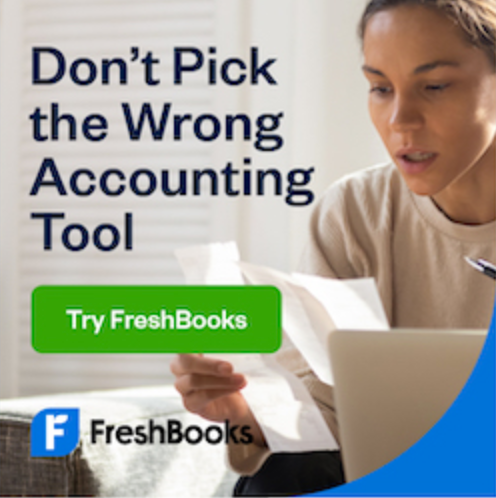- Introduction
- Understanding the Unique Needs of Real Estate Agents
- Exploring the Best Accounting Software for Real Estate Agents
- Comparative Analysis: Features and Benefits
- Testimonials and Case Studies
- Tips for Choosing the Best Accounting Software for Real Estate Agents
- Conclusion: Empowering Realtors for Financial Success
We have hands-on, real world experience with everything we recommend. When you buy through our links, we may earn a commission.
I. Introduction
In the fast-paced world of real estate, effective financial management stands as a linchpin for success. The intricate web of transactions, commissions, and expenses demands meticulous attention, urging real estate agents to seek out the best accounting software for real estate agents solutions. Specialized tools become essential as agents navigate through a myriad of financial intricacies, from tracking commissions to managing client invoices. Consequently, this article underscores the paramount importance of selecting the best accounting software for real estate agents, tailored precisely to meet the unique demands of real estate professionals.

Real estate agents operate within a dynamic landscape where precision and agility are imperative. The complexity inherent in real estate finances necessitates software solutions equipped to handle the multifaceted nature of transactions seamlessly. Moreover, the modern realtor's lifestyle, characterized by constant mobility and flexibility, underscores the indispensability of cloud-based best accounting software for real estate agents platforms. These platforms empower agents to access critical financial data anytime, anywhere, ensuring they remain responsive and efficient in a competitive market environment.
By recognizing the distinctive challenges faced by real estate agents, it becomes evident that off-the-shelf best accounting software for real estate agents often falls short. The need for solutions that are both intuitive and adaptive drives the quest for specialized software. In this pursuit, agents can harness the power of technology to not only streamline their financial processes but also to propel their businesses towards sustained growth and profitability. Thus, the introduction sets the stage for a comprehensive exploration into the realm of the best accounting software for real estate agents, guiding real estate professionals towards informed decisions that fuel their success.
II. Understanding the Unique Needs of Real Estate Agents
Real estate agents navigate a diverse array of financial transactions, from tracking commissions to managing rental property income and expenses. That makes it vital that agents use the best accounting software for rental properties. This intricate financial landscape demands accounting software capable of seamlessly handling these complexities. The ideal accounting solution for real estate professionals encompasses features such as invoicing, expense tracking, and robust reporting capabilities tailored to the specific needs of the industry. By opting for software explicitly designed for the intricacies of real estate finances, agents can streamline their financial processes, freeing up valuable time to concentrate on expanding their business ventures.
In the dynamic world of real estate, mobility and accessibility are indispensable for agents constantly on the move. The ability to access financial data swiftly and conveniently from any location empowers agents to remain organized and responsive to client demands. Cloud-based accounting software emerges as a pivotal tool in this regard, providing realtors with the flexibility to manage their finances seamlessly whether they're in the office, at home, or on the road. Armed with the right accounting software, real estate agents can operate with enhanced efficiency and effectiveness, translating into heightened profitability and success in their professional endeavors.
By recognizing and addressing the unique needs of real estate agents, it becomes evident that traditional accounting solutions may not suffice. The integration of specialized features tailored to the demands of the industry is crucial in enabling agents to navigate the complexities of real estate finances effectively. Through the adoption of cloud-based platforms and intuitive functionalities, real estate professionals can harness the power of technology to optimize their financial management processes and drive sustained growth and success in their businesses.
III. Exploring the Best Accounting Software for Real Estate Agents
When it comes to catering to the specific financial needs of real estate professionals, a handful of accounting software solutions stand out as industry leaders. Among these, Freshbooks, QuickBooks Online, and Xero emerge as top contenders, each offering unique features tailored to streamline the financial processes of real estate agents. Freshbooks, renowned for its user-friendly interface and intuitive design, prioritizes simplicity and efficiency in its invoicing and billing features, making it an attractive option for realtors seeking straightforward solutions.
With its emphasis on ease of use, Freshbooks empowers agents to focus less on administrative tasks and more on nurturing client relationships and closing deals. This is accomplished by utilizing the best accounting software for rental properties.
In contrast, QuickBooks Online takes a more industry-specific approach, offering features specifically tailored to the nuances of real estate transactions. From rental property management to commission tracking, QuickBooks Online provides real estate agents with the tools they need to manage their finances effectively in a competitive market environment. Moreover, its customizable reporting capabilities enable agents to gain valuable insights into their financial performance, facilitating informed decision-making and strategic planning.
Similarly, Xero offers scalable accounting solutions suitable for real estate professionals of all sizes, with customizable features designed to meet the diverse needs of individual businesses. Whether it's invoicing, expense tracking, or detailed reporting, Xero provides real estate agents with the flexibility and adaptability required to navigate the complexities of their financial landscape.
By exploring these top accounting software solutions, real estate agents gain access to a range of features and functionalities tailored to their unique requirements. Whether prioritizing simplicity, industry-specific features, or scalability, agents can find the best fit for their business needs, ultimately empowering them to maximize efficiency, streamline operations, and drive greater financial success in their endeavors.
IV. Comparative Analysis: Features and Benefits
When evaluating accounting software options, real estate agents must meticulously assess the key features and benefits that align with their unique business objectives. Invoicing and billing efficiency stand out as crucial components, particularly for agents who rely on prompt invoicing and seamless tracking of client payments.
Fortunately, Freshbooks, QuickBooks Online, and Xero excel in this aspect, offering robust invoicing features specifically designed to streamline the invoicing process. Whether it's generating professional invoices, setting up recurring billing, or tracking payments, these platforms provide real estate agents with the tools they need to manage their finances efficiently and effectively.
In addition to invoicing and billing, expense tracking and reporting capabilities play a pivotal role in empowering realtors to make informed financial decisions. Real estate agents require insights into their financial performance to assess profitability, identify areas for improvement, and plan for future growth. With comprehensive expense tracking and customizable reporting features, Freshbooks, QuickBooks Online, and Xero enable agents to gain valuable insights into their financial health.
Furthermore, integration and compatibility with other real estate tools and platforms enhance workflow efficiency by ensuring seamless data synchronization across various systems. By conducting a comparative analysis of these features and benefits, real estate agents can pinpoint the accounting software solution that best aligns with their specific needs and objectives.
Ultimately, conducting a thorough comparative analysis of accounting software options empowers real estate agents to make informed decisions that drive their business forward. By carefully evaluating features such as invoicing and billing efficiency, expense tracking and reporting capabilities, and integration with other real estate tools, agents can identify the solution that offers the greatest value and functionality for their unique requirements.
Moreover, selecting the best accounting software for rental property, which may include features like rental income tracking, expense categorization for different properties, and tax preparation assistance tailored to rental income, is crucial for managing rental properties efficiently. With the right accounting software in place, real estate professionals can streamline their financial processes, optimize their operations, and position themselves for greater success in an increasingly competitive market landscape.
V. Testimonials and Case Studies
Real-life testimonials and case studies serve as invaluable resources for real estate agents seeking to understand the practical effectiveness of various accounting software solutions. Success stories provide tangible evidence of the transformative impact of implementing accounting software in real estate businesses.
These narratives showcase the tangible benefits experienced by realtors, ranging from increased efficiency and accuracy in financial management to enhanced profitability and growth. By highlighting real-world examples of success, testimonials offer agents valuable insights into the potential outcomes of adopting accounting software, instilling confidence in their decision-making process.
In addition to success stories, case studies offer a deeper dive into the experiences of real estate professionals who have leveraged specific accounting software solutions. These in-depth examinations provide a comprehensive overview of the challenges faced, the goals set, and the outcomes achieved through the implementation of accounting software.
By delving into the specifics of each case study, real estate agents can glean valuable lessons and best practices for optimizing their own financial management processes. Whether it's overcoming accounting inefficiencies, streamlining workflow procedures, or maximizing profitability, case studies offer a wealth of actionable insights for agents to apply in their own businesses.
Ultimately, testimonials and case studies serve as powerful tools for real estate agents embarking on their journey to select the most suitable accounting software solution. By drawing on the experiences and successes of their peers, agents can gain a deeper understanding of the potential benefits and outcomes of implementing accounting software in their own businesses.
Armed with this knowledge, real estate professionals can make informed decisions that align with their unique needs and objectives, paving the way for enhanced efficiency, productivity, and success in their financial management endeavors. Moreover, selecting the best accounting software for rental properties, which may include features like rental income tracking, expense categorization for different properties, and tax preparation assistance tailored to rental income, is crucial for managing rental properties efficiently.
VI. Tips for Choosing the Best Accounting Software for Real Estate Agents
Choosing the right accounting software is a pivotal decision for real estate agents, as it directly impacts their efficiency, productivity, and ultimately, their bottom line. To navigate this decision-making process effectively, agents must first assess their specific needs and requirements. Factors such as the size of the business, the complexity of financial processes, and budgetary constraints should be carefully considered. By gaining a clear understanding of their unique circumstances, agents can pinpoint the key features and functionalities that are essential for their business operations, thus ensuring they choose a software solution that aligns seamlessly with their requirements.
One of the most valuable strategies for selecting the right accounting software is to take advantage of free trials and software demos offered by providers. These trials allow agents to explore the features and functionalities of different software solutions firsthand, gaining insight into how each platform operates and whether it meets their business needs. By immersing themselves in the software's interface and testing its capabilities, agents can make informed decisions about which solution best suits their requirements.
Furthermore, seeking recommendations and reading reviews from industry peers can provide invaluable insights into the effectiveness and reliability of various accounting software solutions. Leveraging the experiences and expertise of others in the real estate industry can help agents identify potential pitfalls and opportunities, enabling them to make more confident and informed decisions.
In conclusion, selecting the right accounting software is a multi-faceted process that requires careful consideration and evaluation of various factors. By assessing specific needs, testing software through free trials and demos, and seeking recommendations from industry peers, real estate agents can make informed decisions that maximize efficiency, streamline operations, and ultimately, drive greater profitability.
By following these tips, agents can navigate the vast landscape of accounting software solutions with confidence, ensuring they choose a solution that empowers them to achieve their business goals effectively. Considering factors such as rental income tracking, expense categorization for different properties, and tax preparation assistance tailored to rental income, agents can select the best software for rental property accounting that aligns perfectly with their needs and objectives.
VII. Conclusion: Empowering Realtors for Financial Success
In conclusion, the significance of selecting the appropriate accounting software cannot be overstated for real estate agents seeking to optimize their financial management processes and enhance operational efficiency. Whether opting for established solutions like Freshbooks, QuickBooks Online, Xero, or exploring other top-tier alternatives, each software platform offers distinct advantages tailored to meet the diverse needs of real estate professionals. By meticulously assessing their specific requirements, agents can embark on a journey of informed decision-making, ensuring that the chosen software aligns seamlessly with their operational goals and objectives.
Through a comprehensive comparative analysis of available accounting software solutions, real estate agents can gain invaluable insights into the features, functionalities, and benefits offered by each platform. Armed with this knowledge, agents can navigate the selection process with confidence, selecting the software solution that best addresses their unique challenges and requirements. Moreover, by leveraging the experiences and learnings of their peers, agents can draw inspiration and guidance, enabling them to make strategic decisions that pave the way for greater financial success and sustainability in their endeavors.
In essence, the journey to selecting the right accounting software is one marked by careful consideration, informed evaluation, and strategic decision-making. By embracing this process wholeheartedly and remaining attuned to their specific needs and objectives, real estate agents can empower themselves to harness the full potential of accounting software, propelling their businesses towards sustained growth, profitability, and success in the dynamic realm of real estate. Following these tips can help real estate agents choose the best software for rental property accounting.
Frequently Asked Questions
- What are the key features to look for in accounting software for real estate agents?
Key features to look for include invoicing and billing efficiency, expense tracking and reporting capabilities, integration with real estate tools, and mobile accessibility.
- How can real estate agents determine which accounting software is best for their business?
Real estate agents can determine the best accounting software for their business by assessing their specific needs and requirements, exploring available options through free trials and demos, and seeking recommendations from industry peers.
- Can accounting software help real estate agents manage rental properties?
Yes, many accounting software solutions offer features specifically designed for rental property management, including rent tracking, lease management, and expense tracking for maintenance and repairs.
- Is cloud-based accounting software secure for real estate agents?
Yes, cloud-based accounting software providers prioritize security and employ robust encryption methods to protect sensitive financial data from unauthorized access or breaches.
- Can accounting software integrate with other real estate tools and platforms?
Yes, many accounting software solutions offer integration capabilities with popular real estate tools and platforms, allowing for seamless data synchronization and enhanced workflow efficiency.
- How often should real estate agents update their accounting software?
Real estate agents should regularly update their accounting software to ensure they have access to the latest features, security updates, and improvements in functionality.
- Can accounting software help real estate agents track commissions and client payments?
Yes, accounting software solutions typically offer features for tracking commissions, invoicing clients, and managing payments, providing real estate agents with visibility into their financial transactions and earnings.
- Are there accounting software solutions specifically designed for small real estate businesses?
Yes, many accounting software providers offer solutions tailored to the needs of small real estate businesses, with scalable features and pricing plans to accommodate varying business sizes and budgets.
- How can real estate agents ensure data accuracy and consistency in their accounting software?
Real estate agents can ensure data accuracy and consistency by regularly reconciling accounts, categorizing transactions correctly, and reviewing financial reports for errors or discrepancies.
- Can accounting software help real estate agents track business expenses for tax purposes?
Yes, accounting software solutions offer features for tracking business expenses, categorizing transactions, and generating reports that can be used for tax filing purposes.

Unleash Your Real Estate Potential
Make sure you're using the best real estate accounting software available by signing up for Freshbooks today!

